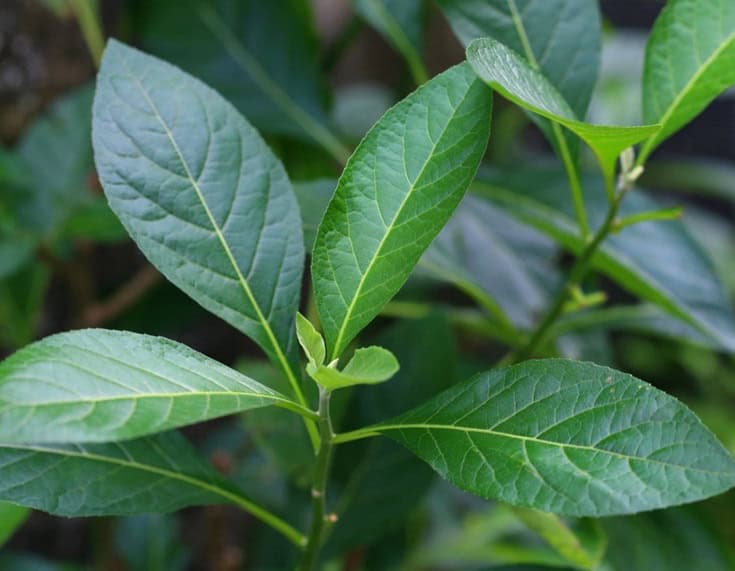
What if I told you that bitter leaf may have some side effects? I know you may be wondering what the possible side effects of bitter leaf would be? Stay with me as I will be revealing them to you soon.
Although bitter leaf is generally safe for consumption, it needs to be taken in moderation. Excessive consumption or or taking it while having certain health conditions can lead to adverse effects. This article explores the side effects of bitter leaf and provides a better approach on how to consume it.
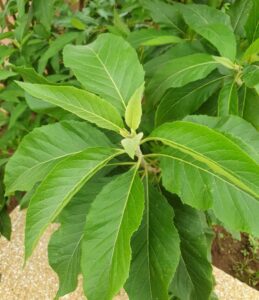
Bitter leaf (Vernonia amygdalina) derives its name from the bitter taste it possesses. It serves as a herb or vegetable for making traditional soups like bitter leaf soup, achi soup, ogbono soup and other meals. It gives meals a characteristic bitter taste which is believed to be beneficial to the body.
Bitter leaf is celebrated for its numerous health benefits, including its use in boosting immunity, managing diabetes, preventing inflammation and digestive issues. It contains antioxidative and anticancer properties.
However, like many natural remedies, bitter leaf also has its potential side effects that we should be aware of. Some of the side effects of bitter leaf include:
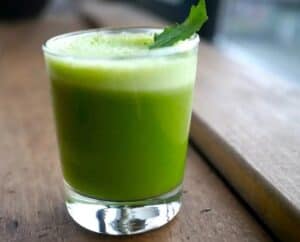
Bitter leaf water or bitter leaf juice, is the greenish liquid extract from the bitter leaf plant. It is obtained by washing bitter leaves and filtering it to get the extract. Many people take bitter leaf extract for medicinal purposes.
Although rare, some side effects that you may notice include:
One of the most common side effects of taking bitter leaf extract is gastrointestinal discomfort. Bitter leaf contains high alkaloid (bioactive compound) which also contributes to its bitter taste. This can irritate the stomach lining when consumed in large quantities.
This irritation may lead to nausea, vomiting, or diarrhea, especially in individuals with sensitive stomachs or pre-existing gastrointestinal conditions.
People experiencing these effects are advised to reduce the intake of bitter leaf and ensure it is thoroughly washed and cooked before consumption.
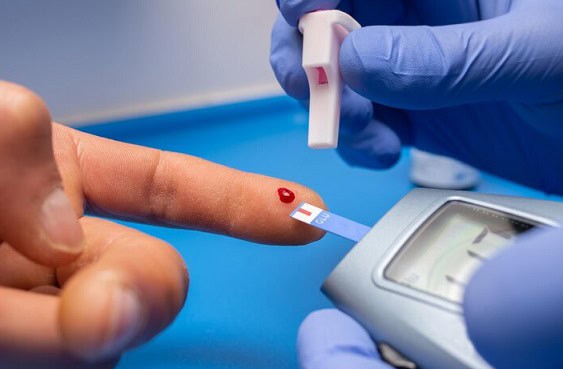
Bitter leaf is known for reducing blood sugar level. This makes it a popular natural remedy for managing diabetes.
However, this effect may pose a high risk of hypoglycemia (extreme low blood sugar) in individuals who do not have diabetes or those already taking medication to lower blood sugar levels.
It is very important for individuals with diabetes or those on low blood sugar medication to monitor their blood sugar levels closely when consuming bitter leaf to avoid dangerous drops in blood sugar levels.
Some individuals may experience allergic reactions to bitter leaf extract consumption. The allergic symptoms can be itching, swelling, and breathing difficulty. If any of these symptoms occur after taking bitter leaf extract, kindly discontinue use immediately and seek medical attention. You can consult a doctor online on KompleteCare using your phone.
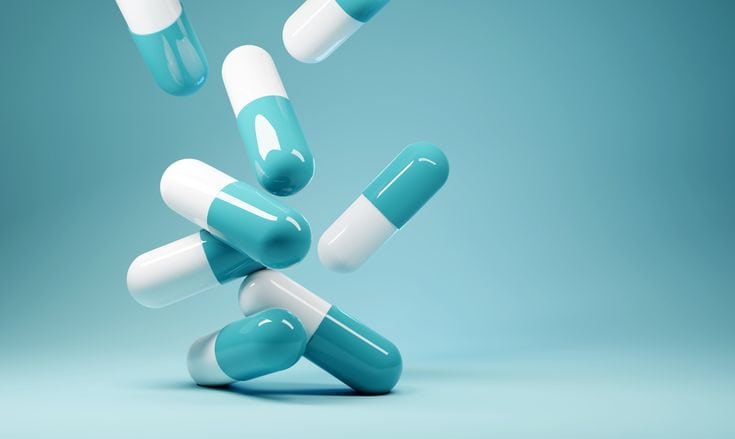
Bitter leaf contains several bioactive compounds, including flavonoids, tannins, and saponins, which can interact with certain medications. For example, the blood sugar-lowering effect of bitter leaves may alter the effects of diabetes medications, increasing the risk of hypoglycemia.
Individuals taking certain prescription medications should always consult with a doctor before adding bitter leaf to their diet or taking bitter leaf extract alongside their medications.
The signature bitter taste of bitter leaf may make it uncomfortable for swallowing. Individuals who cannot handle the taste may vomit it as a reflex action.
You may experience reduced appetite after taking bitter leaf extract on an empty stomach. This may lead to a temporary loss of appetite. If you want to lose weight, taking bitter leaf extract on an empty stomach can help.
Bitter leaf extract, as well as bitter leaf may have cytotoxic (poisonous to body cells) effects when taken in large quantities.
In extremely high doses, certain compounds in bitter leaf, such as alkaloids, could potentially be toxic and may affect liver or kidney function. It was reported in this research that bitter leaf may contain heavy metals which are harmful to the body.
Even though bitter leaf has several health benefits, it also has its side effects. Gastrointestinal discomfort, hypoglycemia, fertility concerns, allergic reactions, and interactions with medications are some of the side effects those using it as a remedy or dietary supplement for weight loss may encounter. As with any herbal treatment, moderation is key, and it is always advisable to consult with a doctor before beginning regular use, particularly for individuals with underlying health conditions or those taking prescription medication.

Bitter leaf does not contain significant amounts of sugar. It is primarily known for its bitter taste, which is due to the presence of compounds like alkaloids, saponins, and tannins. These compounds contribute to its medicinal properties, such as its ability to lower blood sugar levels, making it ideal for managing diabetes. It is mostly consumed for its health benefits, including blood sugar regulation, rather than as a source of calories or sweetness.
Bitter leaf is considered safe for the liver and kidney. In traditional medicine, it is used to help detoxify the body and support liver health. It contains antioxidants, vitamins, and compounds like saponins and flavonoids that can protect the liver from oxidative stress.
However, excessive consumption could potentially lead to adverse side effects. Some studies suggest that high doses of bitter leaf extracts might be harmful due to the presence of certain alkaloids, which could cause liver and kidney damage if consumed in large amounts over a long period.
Yes, bitter leaf possess antibiotic properties. It contains bioactive compounds like flavonoids, tannins, saponins, and alkaloids, which have antimicrobial effects against a variety of bacteria and other pathogens.
Research has shown that bitter leaf extracts can inhibit the growth of several bacteria, including Klebsiella pneumoniae, Escherichia coli, and Salmonella typhi. This explains why it is used in traditional medicine for treating infections and wounds. However, while bitter leaf has these properties, it should not be considered a substitute for prescribed antibiotics, especially in serious infections.
Bitter leaf roots are used in traditional medicine for their medicinal benefits, but they are typically prepared in small, controlled doses. The roots are not commonly consumed due to their potential toxicity. The bioactive compounds, including alkaloids and saponins, which have medicinal properties can also be toxic if consumed in large quantities. The toxicity level can vary depending on the concentration and preparation of the root.

Telemedicine offers the option of speaking or chatting with medical professionals online. The convenience and accessibility it offers makes it your best option in today’s world where it is not easy to book a doctor’s appointment anymore.
Telemedicine makes it easier and faster to consult a doctor from the comfort of your home. With your smartphone, you can speak or chat with a doctor in a matter of seconds.
You can equally talk to a doctor about your general health concerns, get your prescriptions, access second opinion or health counseling.
If you have any concerns or questions about the side effects of taking bitter leaf or bitter leaf water, do not hesitate to talk to expert doctors who are available online 24/7.
References
Chioma Okwara. (2024). Health benefits of Bitter Leaf
Jane Ogoamaka Okwuzu et al. (2017). Cytotoxicity Testing of Aqueous Extract of Bitter Leaf (Vernonia amygdalina Del) and Sniper 1000EC (2,3 dichlorovinyl dimethyl phosphate) Using the Alium Cepa Test
Journal of Diabetes Research. (2016). Antidiabetic Effect of Young and Old Ethanolic Leaf Extracts of Vernonia amygdalina.
Ogbonda et al. (2012). Heavy Metal Content in Bitter Leaf (Vernonia amygdalina) Grown Along Heavy Traffic Routes in Port Harcourt
Farombi, E. O., & Owoeye, O. (2011). Antioxidative and chemopreventive properties of Vernonia amygdalina and Garcinia biflavonoid.
Haruna. S. et al. (2020). Antibacterial Effect of Bitter Leave (Vernonia amygdalina) on Klebsiella pneumoniae
healthcareFebruary 27, 2025
healthcareAugust 20, 2025








